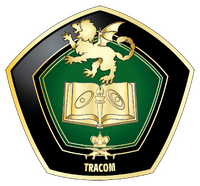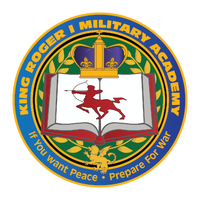Difference between revisions of "BuTrain:Ground Forces Training Command"
m |
(redirect) Tag: New redirect |
||
| (One intermediate revision by the same user not shown) | |||
| Line 1: | Line 1: | ||
#redirect [[BuTrain:GFTC MLTC]] | |||
{| align="right" class="wikitable" | {| align="right" class="wikitable" | ||
| Line 22: | Line 22: | ||
== Introduction == | == Introduction == | ||
The [[BuTrain:Ground Forces Training Command|Ground Forces Training Command]] (GFTC) oversees the combined Royal Manticoran Marine Corps Training Command (RMMCTC) and the King Roger I Military Academy (KR1MA), allowing a combined administrative staff to provide unity of command and instruction to the [[RMMC]] and RMA. The GFTC’s focus is on continual training and the ongoing self-improvement of the marines, soldiers, and other students that pursue coursework. The GFTC offers its educational services through the following two main training centers: the Main Line Training College (MLTC) and the Military Occupational Specialties Center (MOSC). Each unit is headed by a Vice Commandant and offers coursework primarily to Army and Marine personnel, as well as other service members. | The [[BuTrain:Ground Forces Training Command|Ground Forces Training Command]] (GFTC) oversees the combined Royal Manticoran Marine Corps Training Command (RMMCTC) and the King Roger I Military Academy (KR1MA), allowing a combined administrative staff to provide unity of command and instruction to the [[RMMC]] and [[Royal_Manticoran_Army|RMA]]. The GFTC’s focus is on continual training and the ongoing self-improvement of the marines, soldiers, and other students that pursue coursework. The GFTC offers its educational services through the following two main training centers: the Main Line Training College (MLTC) and the Military Occupational Specialties Center (MOSC). Each unit is headed by a Vice Commandant and offers coursework primarily to Army and Marine personnel, as well as other service members. | ||
== Organization == | == Organization == | ||
Latest revision as of 16:56, 18 October 2024
Redirect to:
| Ground Forces Training Command | |
|---|---|
 
| |
| Colleges |
Introduction
The Ground Forces Training Command (GFTC) oversees the combined Royal Manticoran Marine Corps Training Command (RMMCTC) and the King Roger I Military Academy (KR1MA), allowing a combined administrative staff to provide unity of command and instruction to the RMMC and RMA. The GFTC’s focus is on continual training and the ongoing self-improvement of the marines, soldiers, and other students that pursue coursework. The GFTC offers its educational services through the following two main training centers: the Main Line Training College (MLTC) and the Military Occupational Specialties Center (MOSC). Each unit is headed by a Vice Commandant and offers coursework primarily to Army and Marine personnel, as well as other service members.
Organization
Commandant
The Commandant is responsible for overseeing day-to-day operations of the Ground Forces Training Command including supervising the development of new courses for the academy (in cooperation with the BuTrain Course Development staff), overseeing the faculty and staff, and the hiring and relieving of all faculty and staff.
Vice Commandants
As noted above, the Mainline Training College and the Military Occupational Specialties Center are both headed by a GFTC Vice Commandant. One of these individuals simultaneously serves as the GFTC Deputy Commandant. The Vice Commandant of the Main Line Training College (MLTC) oversees the Royal Manticoran Army Main Line Department, the Royal Manticoran Marine Corps Main Line Department, the Staff Officer Training Center, and all associated instructors. The Vice Commandant of the Military Occupational Specialties Center (MOSC) oversees the Marine Technical Specialties College, the Army Occupational Specialty School, and all associated instructors.
Instructors
Instructors are the primary point of contact between the students and the Ground Forces Training Command. Instructors oversee one or more series of courses within a sequence or specialty school. They ensure that courses are graded, results are entered into MEDUSA, certificates of completion are distributed, and students are provided with a first line of support when needed.